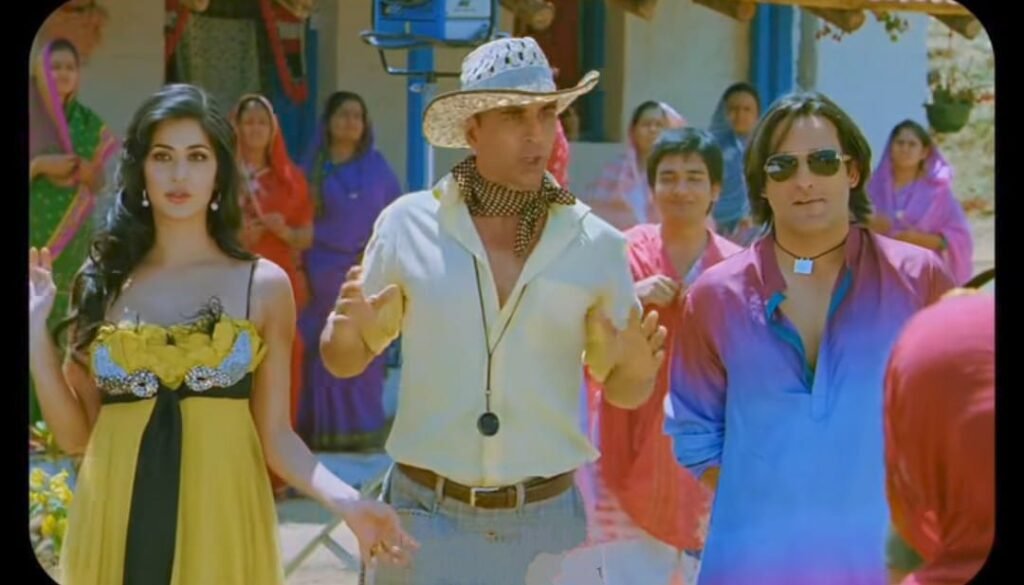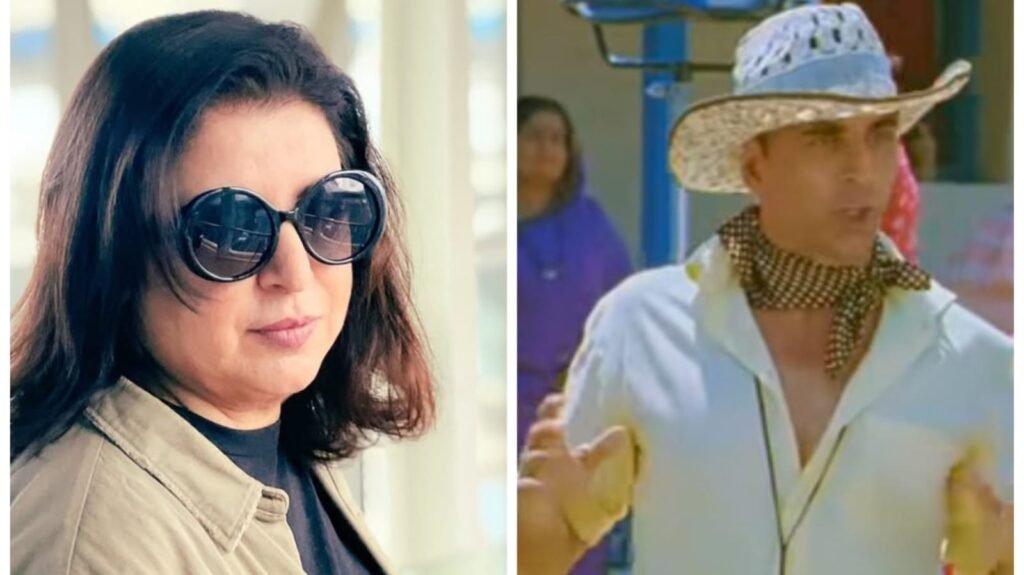In a shocking revelation, Farah Khan shares how Bollywood insiders celebrated the failure of Tees Maar Khan. Discover the truth behind her statement, industry dynamics, and what it means for filmmakers in India.
Farah Khan Speaks Out: The Bitter Reality Behind Tees Maar Khan’s Backlash
In the glimmering land of Bollywood, successes are showcased with flair. But what is it when a film flops? More importantly, what about when that flop becomes a reason to celebrate, not from fans but from the film industry itself?
It was interesting to see Farah Khan open up about the backlash she experienced after her 2010 film, Tees Maar Khan.
What Went Wrong with Tees Maar Khan?

When Tees Maar Khan, starring Akshay Kumar and Katrina Kaif, was released in December 2010, the expectations were through the roof. The trailers had promised slapstick comedy, a larger-than-life extravaganza, and a soundtrack that couldn’t miss (remember Sheila Ki Jawani?). It was a short time before the film was derided by critics for a poor plot and lack of coherence.
It was branded as “style over substance,” and even fans were disappointed, calling this Farah’s weakest attempt as a director.
Although it opened strongly at the box office, negative word-of-mouth devastated its shelf life. Just weeks later, it had withered up into nothingness, and it was only fitting that Bollywood insiders now seemed… strangely elated.
Farah Khan’s Honest Reflection: Not Just a Flop, a Learning Lesson
Farah’s comments are not just about one particular film’s failure. They speak to a larger issue in Bollywood’s ecosystem–the competitive culture that allows people to only celebrate the failures of others.
“It was like a party,” she said.
She recalled how a certain group of people in the industry actually celebrated the film’s failure. It wasn’t schadenfreude from outside competitors; it was her peers.
As Farah indicated, this is a pattern rooted in a toxic competitiveness, where jealousy overshadows collaboration.
Personal Opinion:
Farah’s journey in Bollywood has been excruciatingly difficult. She began her career as a background dancer (in the late 1980s), and has worked all the way to become one of India’s most recognisable female directors (Main Hoon Na, Om Shanti Om). Her tortuous route to this achievement was more luck than assessment. Although she made it to this position (with Tees Maar Khan), it is a reminder that success can be solitary in the film industry, but failure can be filled with people, mostly to mock you.
Farah – An Honest Woman

Her Impact on Indian Bollywood
Farah is not just a filmmaker. She is:
A mega successful director with hits like Main Hoon Na, Om Shanti Om, and Happy New Year. Close to hits.
An accomplished choreographer with more than 100 songs.
Completely herself, and therefore outspoken.
Farah Honest Reflection: Not Just a Flop, a Learning Lesson
Farah’s comments are not just about one particular film’s failure. They speak to a larger issue in Bollywood’s ecosystem–the competitive culture that allows people to only celebrate the failures of others.
“It was like a party,” she said.
She recalled how a certain group of people in the industry actually celebrated the film’s failure. It wasn’t schadenfreude from outside competitors; it was her peers.
As Farah indicated, this is a pattern rooted in a toxic competitiveness, where jealousy overshadows collaboration.
Personal Opinion:
Farah’s journey in Bollywood has been excruciatingly difficult. She began her career as a background dancer (in the late 1980s), and has worked all the way to become one of India’s most recognisable female directors (Main Hoon Na, Om Shanti Om). Her tortuous route to this achievement was more luck than assessment. Although she made it to this position (with Tees Maar Khan), it is a reminder that success can be solitary in the film industry, but failure can be filled with people, mostly to mock you.
Farah Khan – An Honest Woman
Her Impact on Indian Bollywood
Farah is not just a filmmaker. She is:
A mega successful director with hits like Main Hoon Na, Om Shanti Om, and Happy New Year. Close to hits.
An accomplished choreographer with more than 100 songs.
Completely herself, and therefore outspoken.
Although she is a part of the “Bollywood elite,” Farah has always supported her group, choices, and truth.
Farah’s Bravery Will Usher Bigger Conversation
When it comes to surviving this world, silence can often be a weapon of choice, but Farah made the decision to speak her truth, and in doing so, has provided a reflection of the film industry. While her political courage threatens to expose the cracks behind Bollywood’s glittering facade, it also positions an opportunity for safe conversation, authentic support, and long-overdue change.
FAQs
1. Why did Tees Maar Khan fail when it had a juggernaut of a cast?
To put it simply, Tees Maar Khan was a poor script/lacking of narrative. Audiences thought the music was cool, but the humor was stupid, and the plot was stupid.
2. What did Farah Khan say, exactly, about the industry reaction?
Many were happy that it failed. Many were saying, “Ab aayi na line par,” and that is a toxic comment.
3. Has Bollywood always been that competitive and cutthroat?
Certainly, we should relate to competition, but many actors and directors have mentioned how personal rivalry, nepotism, and gatekeeping intensify the situation.
4. Are there instances of celebrities backing each other through these failures?
Yes, actors such as Shah Rukh Khan, Anushka Sharma, and Ayushmann Khurrana have often championed the right to fail for their peers seemingly publicly during negative seasons.
5. Is Farah Khan still active in the Film Industry?
Yes, she continues to produce, direct, and choreograph movies, and judges reality shows whilst supporting emerging talents.
6. What could be learned from a young filmmaker?
That persistence is paramount, and the industry will not always champion your authenticity (though, perhaps, the audience will even if the industry won’t), matters most.
7. Will Bollywood change to become a more supportive environment?
Cultural change takes time, but there should be more voices such as Farah’s that will promote better dynamics and openness in the future.
